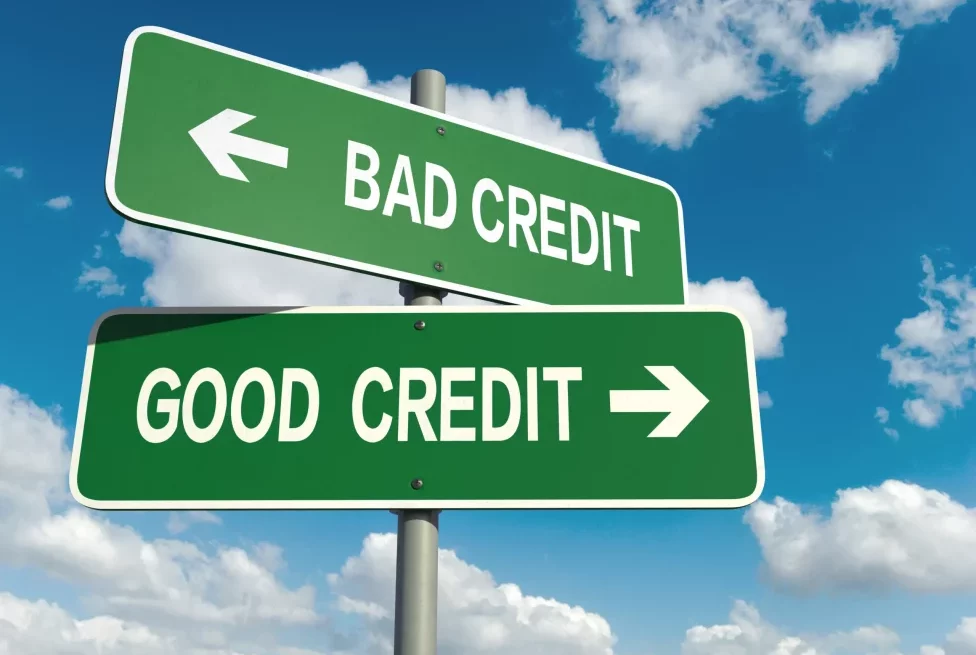 Small business owners with less than perfect credit might think that there is no way they can qualify for a loan to help their company. But that is certainly not the case, as there are various sources out there that are willing to provide financing options to small business owners with poor credit, as detailed below:
Small business owners with less than perfect credit might think that there is no way they can qualify for a loan to help their company. But that is certainly not the case, as there are various sources out there that are willing to provide financing options to small business owners with poor credit, as detailed below:
Alternative/online lenders: There are various reputable alternative/online lenders out there that are willing to provide financing to applicants with poor credit scores. Some sources may be willing to extend options to borrowers with a FICO score as low as 500; however, it should be noted that the cost of capital for these options will be extremely high. Alternative lenders often provide revenue based financing options, where the borrower is provided a lump sum in exchange for a portion of the company’s future receivables. As such, some lenders are often more concerned with the company’s sales history than the applicant’s credit score.
 Credit unions: These institutions are often owned by their members and many of them may overlook the fact the applicant’s FICO is low, assuming the small business operates in their industry or if the company staffs workers that are part of the union.
Credit unions: These institutions are often owned by their members and many of them may overlook the fact the applicant’s FICO is low, assuming the small business operates in their industry or if the company staffs workers that are part of the union.
 SBA: Outside of the well known 7(a) loan (which requires a FICO score of 650 and above), the SBA has other financing solutions that will accept a lower score, including microloans and CDC/504 loans. The 504 loan does not have a minimum FICO score requirement, but they may consider an applicant’s business credit score. The process of applying for an SBA loan will often take several weeks (or longer) to complete, whereas alternative lenders take only about two to three days to complete.
SBA: Outside of the well known 7(a) loan (which requires a FICO score of 650 and above), the SBA has other financing solutions that will accept a lower score, including microloans and CDC/504 loans. The 504 loan does not have a minimum FICO score requirement, but they may consider an applicant’s business credit score. The process of applying for an SBA loan will often take several weeks (or longer) to complete, whereas alternative lenders take only about two to three days to complete.
It should be noted that lending sources that are not as strict regarding FICO scores, assuming they are approved, usually do not offer high loan amounts (typically up to $50,000) and they also include high interest rates as well.
 But before beginning the process of applying for a loan with one of these sources, it is important for a business owner to think about their situation first. If they are in dire need of working capital now, an alternative lending source that provides funds to applicants with lower FICO scores might be the best option. But if they can afford to wait before applying in order to take steps to improve their credit score, that might be the more beneficial option for both the applicant and the business, as more money could potentially be secured at a lower cost by having an improved FICO score. But in order to improve personal credit score, there various steps than can be taken in order to do so, as detailed below:
But before beginning the process of applying for a loan with one of these sources, it is important for a business owner to think about their situation first. If they are in dire need of working capital now, an alternative lending source that provides funds to applicants with lower FICO scores might be the best option. But if they can afford to wait before applying in order to take steps to improve their credit score, that might be the more beneficial option for both the applicant and the business, as more money could potentially be secured at a lower cost by having an improved FICO score. But in order to improve personal credit score, there various steps than can be taken in order to do so, as detailed below:
 Payment history is one of the main factors that affects credit score, as this shows whether an applicant has paid their bills on time or not. Missing payments on any debt can negatively affect credit score. So by establishing a history of making payments on time, this shows creditors and potential lenders an applicant’s ability to manage finances responsibly and can help establish a positive record with lenders. In order to prevent missed payments, one simple way to do so is by setting up account reminders or considering setting up automatic payments to cover at least the minimum amount owed. This way applicants ensure that payments will be made on time every month.
Payment history is one of the main factors that affects credit score, as this shows whether an applicant has paid their bills on time or not. Missing payments on any debt can negatively affect credit score. So by establishing a history of making payments on time, this shows creditors and potential lenders an applicant’s ability to manage finances responsibly and can help establish a positive record with lenders. In order to prevent missed payments, one simple way to do so is by setting up account reminders or considering setting up automatic payments to cover at least the minimum amount owed. This way applicants ensure that payments will be made on time every month.
 Another factor that impacts credit score is credit utilization ratio (which is the amount owed on accounts compared to total available credit limit). It is recommended to aim for a utilization ratio of 30percent or less (and the lower the better). Ways to keep credit utilization low include paying credit card balances in full each month, paying down the balance before the billing cycle ends or paying several times throughout the month.
Another factor that impacts credit score is credit utilization ratio (which is the amount owed on accounts compared to total available credit limit). It is recommended to aim for a utilization ratio of 30percent or less (and the lower the better). Ways to keep credit utilization low include paying credit card balances in full each month, paying down the balance before the billing cycle ends or paying several times throughout the month.
 Other ways business owners can do this is by contacting their financial institution to request an increase to their credit limit or by opening a new credit card or line of credit (but the key here is not increasing the amount you owe). By increasing credit limits (without increasing balances owed), the credit utilization ratio should decrease.
Other ways business owners can do this is by contacting their financial institution to request an increase to their credit limit or by opening a new credit card or line of credit (but the key here is not increasing the amount you owe). By increasing credit limits (without increasing balances owed), the credit utilization ratio should decrease.
It is also important to monitor credit report regularly in order to check for errors or fraudulent activity. A small business owner’s score could increase if they are able to dispute them and have them removed. Free credit reports are available from Experian, Equifax and TransUnion, among others. If late payments are listed on the credit report, it is important to make those payments and get those debts paid off as soon as possible. If a credit report shows an old account that has been paid off, a small business owner should request to have that listing be marked as paid, or ideally, removed all together, which could have a greater impact on their score.
 If a small business owner finds an error on their report that needs to be disputed (such as identity errors, incorrect reporting of account statuses, data management errors, or balance errors), gather any supporting documents and information that can assist the dispute (such as credit card statements, bank statements, emails, or letters). After gathering the appropriate supporting documentation, they can file the dispute with their credit bureau either online, by mailing them a letter explaining the situation and including the related documents or contacting them over the phone.
If a small business owner finds an error on their report that needs to be disputed (such as identity errors, incorrect reporting of account statuses, data management errors, or balance errors), gather any supporting documents and information that can assist the dispute (such as credit card statements, bank statements, emails, or letters). After gathering the appropriate supporting documentation, they can file the dispute with their credit bureau either online, by mailing them a letter explaining the situation and including the related documents or contacting them over the phone.
Other ways small business owners can potentially improve credit score include adding to their credit mix, get credit for making rent and utility payments (note that certain credit bureaus do not include this in their reports), use a secured credit card, or pay off accounts that are in collections. Keep in mind that it can take several weeks or possibly months to see a noticeable impact on a credit score when first starting to take steps to turn it around. But following these steps can help improve a small business owner’s credit score and set up their small business for future success.
 Struggling to secure working capital due to a low FICO score? Consider reaching out to Penhurst Capital, as they have access to a network of sources that are capable of helping small business owners with less than stellar credit to secure the much needed working capital they need to help their business.
Struggling to secure working capital due to a low FICO score? Consider reaching out to Penhurst Capital, as they have access to a network of sources that are capable of helping small business owners with less than stellar credit to secure the much needed working capital they need to help their business.



